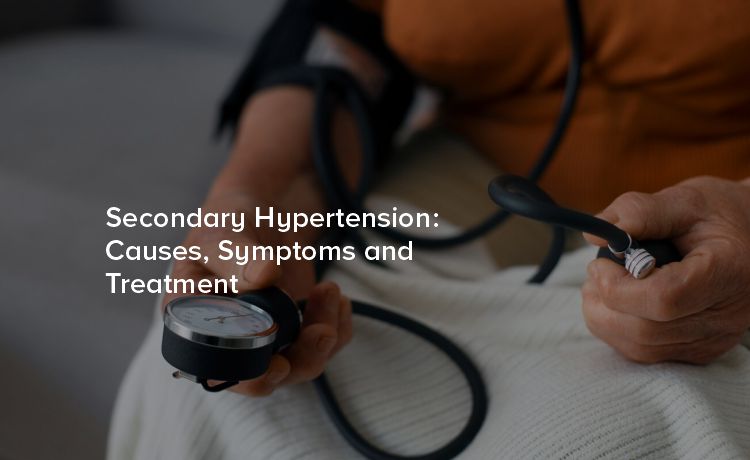
In the vast world of health conditions, hypertension stands out as a notorious leader due to its prevalence and impact on overall health. While primary hypertension gets most of the spotlight, secondary hypertension lurks in the shadows, less known but equally significant.
Secondary hypertension is a form of high blood pressure caused by an underlying condition. Unlike primary hypertension, which develops over time without a clear cause, secondary hypertension appears suddenly and tends to result in higher blood pressure levels. Identifying and treating the root cause of secondary hypertension can often alleviate the condition or improve blood pressure control.
Secondary hypertension can be the result of various conditions and medications. Some of the most common causes include:
kidney disease: The kidneys play a crucial role in regulating blood pressure by controlling fluid and salt balance in the body. Any condition that affects kidney function can lead to elevated blood pressure.
Endocrine Disorders: Hormonal imbalances, such as those caused by thyroid problems, adrenal gland tumors (pheochromocytoma), or Cushing's syndrome, can increase blood pressure.
Congenital Heart Defects: Certain birth defects in the heart or its major blood vessels can cause secondary hypertension.
Medications: Certain drugs, including oral contraceptives, decongestants, over-the-counter pain relievers, and some prescription drugs, can raise blood pressure.
Sleep Apnea: This sleep disorder, characterized by repeated stops and starts in breathing, can result in secondary hypertension.
Lifestyle Factors: Excessive alcohol intake, illicit drug use, and even certain dietary supplements can contribute to this condition.
The tricky part about secondary hypertension is that its symptoms often mirror those of primary hypertension. Common signs include:
However, what distinguishes secondary from primary hypertension is the sudden onset of high blood pressure, particularly in individuals who had normal blood pressure readings previously or in those whose blood pressure suddenly becomes difficult to control.
For Kidney Disease: Managing kidney function through medication or dialysis can improve blood pressure.
For Endocrine Disorders: Correcting hormonal imbalances through medication or surgery can normalize blood pressure levels.
For Sleep Apnea: Using a CPAP machine to ensure continuous airflow during sleep can significantly lower blood pressure.
Lifestyle Modifications: Regardless of the underlying cause, lifestyle changes such as eating a balanced diet, exercising regularly, reducing sodium intake, and limiting alcohol can be beneficial.
If you suspect you have secondary hypertension, it's crucial to consult with a healthcare provider for a thorough evaluation. They may recommend various tests to identify the root cause of your high blood pressure. Remember, the sooner the underlying condition is treated, the better your chances of controlling or even reversing secondary hypertension.
Secondary hypertension may be less known than its primary counterpart, but it requires equal attention. Understanding the causes, recognizing the symptoms, and seeking appropriate treatment can not only improve your quality of life but also significantly reduce your risk of complications associated with high blood pressure. Citizens Specialty Hospital offers the best cardiology treatment in Hyderabad. Book an appointment with our experts now.